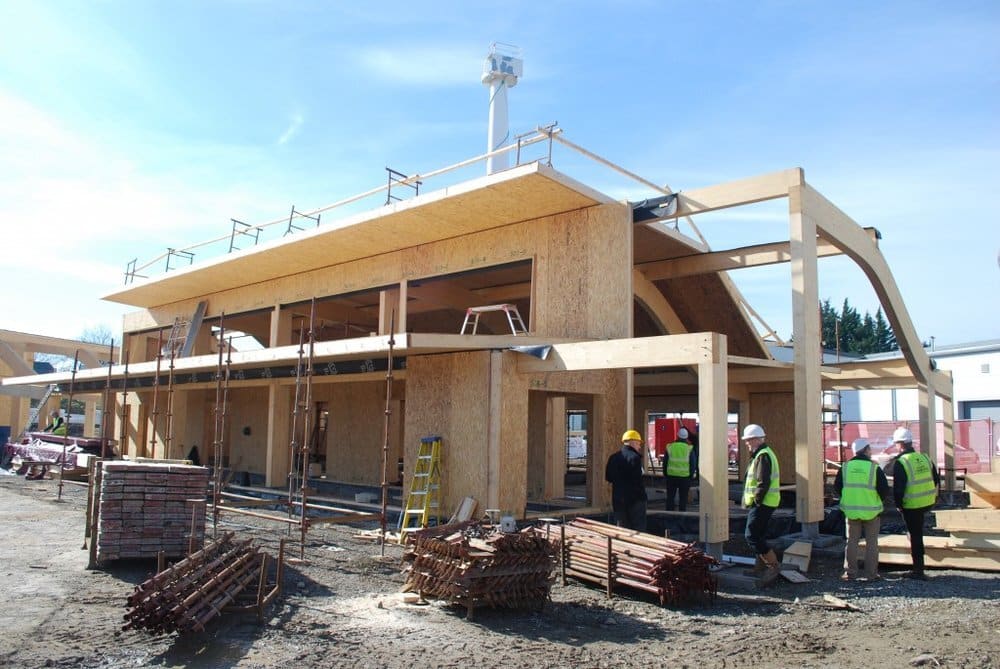Blog
What is Structural Insulated Panels?
Structural Insulated Panels (SIPs) are prefabricated building panels typically composed of a rigid foam insulation sandwiched between two structural facings, such as oriented strand board (OSB) or plywood. These panels are used in residential and commercial construction for walls, floors, and roofs. Here’s a breakdown of their features and advantages:
Composition: SIPs typically consist of some foam materials. This core is sandwiched between two structural facings, which are usually made of OSB or plywood. The facings provide strength and stability to the panel, while the insulation core provides thermal resistance.

Energy Efficiency: One of the primary advantages of SIPs is their high level of energy efficiency. The continuous layer of insulation within the panels minimizes thermal bridging and reduces heat loss through walls, floors, and roofs. This can lead to significant energy savings over the life of the building.
Quick Installation: SIPs are prefabricated off-site according to precise specifications, which allows for quick and efficient installation on the construction site. This can help reduce construction time and labor costs.
Structural Strength: Despite their lightweight nature, SIPs offer excellent structural strength and rigidity. Resistant to wind, snow and earthquakes.

Design Flexibility: SIPs can be customized to meet a wide range of design requirements and architectural styles. They can be used for walls, floors, and roofs in both residential and commercial buildings.
Air Tightness: SIP construction tends to result in buildings with fewer air leaks. Tight seals between panels help maintain indoor air quality and reduce the penetration of allergens, pollutants and moisture, resulting in a more comfortable and healthier indoor environment.

Sustainability: SIPs typically use materials that are renewable and recyclable. Additionally, their energy-saving properties reduce heating and cooling.
Cost-Effectiveness: While the upfront cost of SIPs may be higher than traditional building materials, their energy-saving benefits, quick installation, and long-term durability can result in cost savings over the life of the building.
Overall, structural insulated panels offer a compelling solution for constructing energy-efficient, durable, and sustainable buildings, making them increasingly popular in modern construction practices.